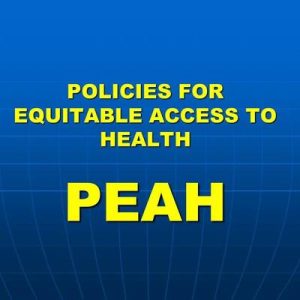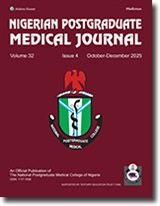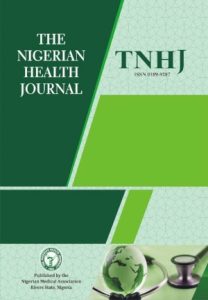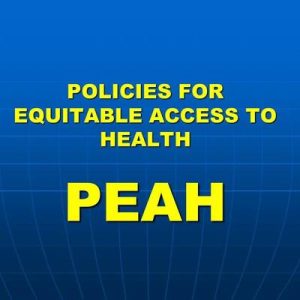IN A NUTSHELL
Author's Note
 Social economy initiatives and Green parties have gained prominence as responses to ecological and health crises. Yet too often these movements remain complacent with the prevailing global system of competition, industrial scale, and high consumption. Such alignment risks reinforcing, rather than dismantling, the drivers of inequity and ecological collapse.
We argue for a paradigm shift towards sufficiency, simple living, and shared commons. Frameworks such as the WISE paradigm (Wellbeing, Inclusion, Sustainability, Equity) and the SHEM webinars (Sustainable Health Equity Metrics) demonstrate that global material consumption could fall to one quarter of present levels without loss of wellbeing, and that ecological footprints could shrink to one third.
Planetary health requires more than incremental “green” reforms: it demands systemic change toward food sovereignty, agroecology, degrowth, open knowledge, and redistribution. By centring justice, equity, and sufficiency, societies can safeguard both human wellbeing and Earth’s systems.
Social economy initiatives and Green parties have gained prominence as responses to ecological and health crises. Yet too often these movements remain complacent with the prevailing global system of competition, industrial scale, and high consumption. Such alignment risks reinforcing, rather than dismantling, the drivers of inequity and ecological collapse.
We argue for a paradigm shift towards sufficiency, simple living, and shared commons. Frameworks such as the WISE paradigm (Wellbeing, Inclusion, Sustainability, Equity) and the SHEM webinars (Sustainable Health Equity Metrics) demonstrate that global material consumption could fall to one quarter of present levels without loss of wellbeing, and that ecological footprints could shrink to one third.
Planetary health requires more than incremental “green” reforms: it demands systemic change toward food sovereignty, agroecology, degrowth, open knowledge, and redistribution. By centring justice, equity, and sufficiency, societies can safeguard both human wellbeing and Earth’s systems.

By Juan Garay
Founder and Co-chair of SHEM. Professor of Global health. Lead of the Valyter ecovillage. Valyter.es
Beyond Green Complacency: WISE, SHEM and the Case for Radical Sharing
Introduction
The vision of planetary health is inseparable from the transformation of economic and social systems. While Green parties, impact enterprises, and “sustainable development” initiatives are widely promoted, they often fail to question the deeper Factory of injustice and depletion: global competition, industrial scale, and excessive consumption. Incremental greening—improving efficiency, substituting fuels, or promoting ethical business—risks leaving these foundations untouched.
The Complacency of Green Reformism
The majority of ecological initiatives remain framed by growth-oriented logic. They prioritize decarbonisation, recycling, and circular economy strategies while accepting large-scale production, long-distance trade, and corporate concentration as structural givens. Such approaches do not address the root causes of inequity and environmental overshoot (Rockström et al., 2009).
Sufficiency and Network Sharing
Research indicates that wellbeing does not require high consumption. Evidence suggests that reducing global material throughput to one quarter of current levels could enhance quality of life while reducing ecological footprints to one third (Jackson, 2017; Raworth, 2017). Open-source software, food cooperatives, and commons-based networks illustrate how access, creativity, and resilience can expand without intensifying material demand.
WISE and SHEM: Alternative Paradigms
The WISE paradigm (Wellbeing, Inclusion, Sustainability, Equity) reframes development around sufficiency, fairness, and ecological balance, offering metrics that move beyond GDP (Garay, 2020). In parallel, the SHEM webinars convened by international institutions have advanced reflection on Sustainable Health Equity Metrics, integrating life expectancy, fairness, and planetary boundaries. Both frameworks demonstrate that justice, health, and ecological sustainability are inseparable.
Implications for Planetary Health
Achieving planetary health requires:
- Policy change — adopting WISE and SHEM-inspired metrics that prioritise equity, redistribution, and sufficiency.
- Movement reorientation — social economy and ecological actors must move beyond corporate partnerships and reformist green growth, toward degrowth, agroecology, and food sovereignty.
- Research — scholars should explore sufficiency pathways, low-consumption societies, and the health impacts of commons-based and redistributive practices.
Conclusion
Green complacency is insufficient. To reconcile human wellbeing with planetary boundaries, societies must embrace sufficiency, simple living, and shared networks. Paradigms such as WISE and SHEM demonstrate that profound lifestyle change—rather than diluted reforms—offers a pathway to justice, health, and ecological stability.
References
Garay, J. (2020). The WISE paradigm: Wellbeing, Inclusion, Sustainability, Equity. PEAH – Policies for Equitable Access to Health. Retrieved from https://www.peah.it
SHEM Webinars (2021–2024). Sustainable Health Equity Metrics: Global seminar series. Supported by Fiocruz, Escuela Nacional de Sanidad, ELAM, UNACH, SHEM Network.
Jackson, T. (2017). Prosperity without Growth: Foundations for the economy of tomorrow (2nd ed.). Routledge.
Raworth, K. (2017). Doughnut Economics: Seven Ways to Think Like a 21st-Century Economist. Random House.
Rockström, J., Steffen, W., Noone, K., et al. (2009). A safe operating space for humanity. Nature, 461, 472–475.
Contributors: Juan Garay, on behalf of SHEM, conceptualised and wrote the manuscript.
Declaration of interests: The author declares no competing interests.
—
By the same Author recently on PEAH
The Inequity Risks of AI When the Global Good Is Not the Goal
Keeping Up the Quest for Sustainable Health Equity: Fifth Anniversary of SHEM
Previously: see HERE and HERE










